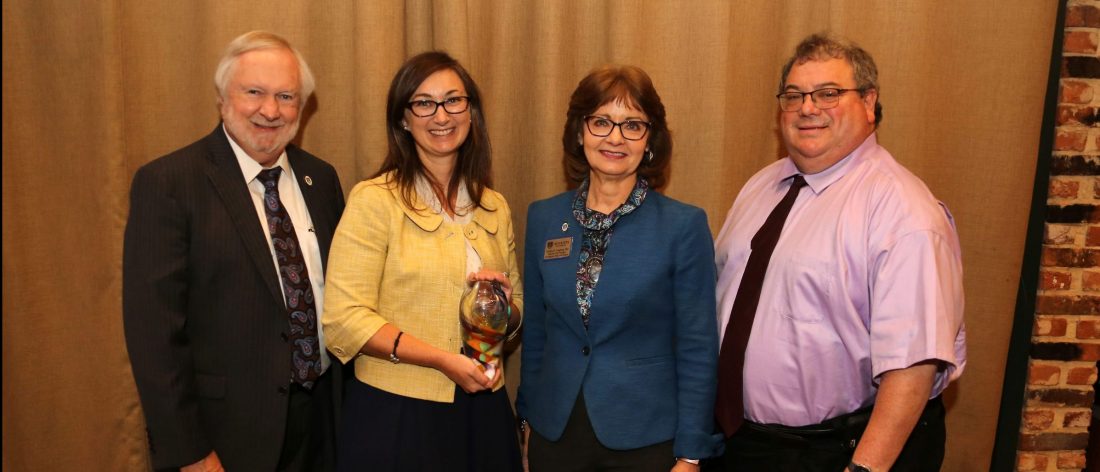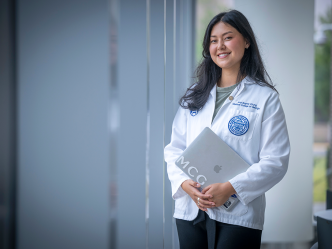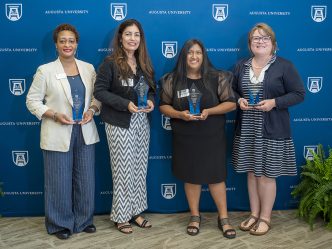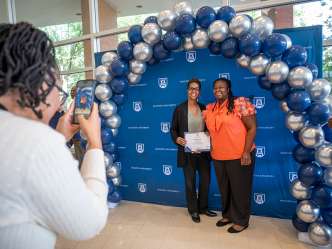Six members of Augusta University’s faculty were recognized at the 2019 Augusta University Research Institute Awards on Friday, Oct. 18.
Dr. Teal Benevides, associate professor in the Department of Occupational Health at the College of Allied Health, and Dr. Sangeetha Sukumari Ramesh, in the Department of Pharmacology and Toxicology at the Medical College of Georgia, both received the Emerging Scientist award.
“I was incredibly humbled to receive this award because there are so many incredible, highly qualified researchers at Augusta University,” Benevides said. “I am proud to have received it, but also think it’s important to recognize that research is a ‘team sport,’ and my receipt of this award is a reflection on the many people who have been involved in the process.”
The Emerging Scientist award honors AU faculty members in the early stages of their research careers who are beginning to make outstanding contributions to research. Benevides is recognized as a scholar in the field of occupational therapy and within the area of autism research.
“I am passionate about ensuring that individuals on the autism spectrum and those with other developmental conditions have access to necessary and desired services, and have opportunities to participate in meaningful life activities,” Benevides said.
“Many people think that those on the autism spectrum are children — but children grow up. So many individuals in our society are excluded or stigmatized for being on the autism spectrum, and my goals in research are to understand this community’s needs, identify opportunities to improve lives, and foster successful life outcomes for people, all throughout their lifespan,” she added.
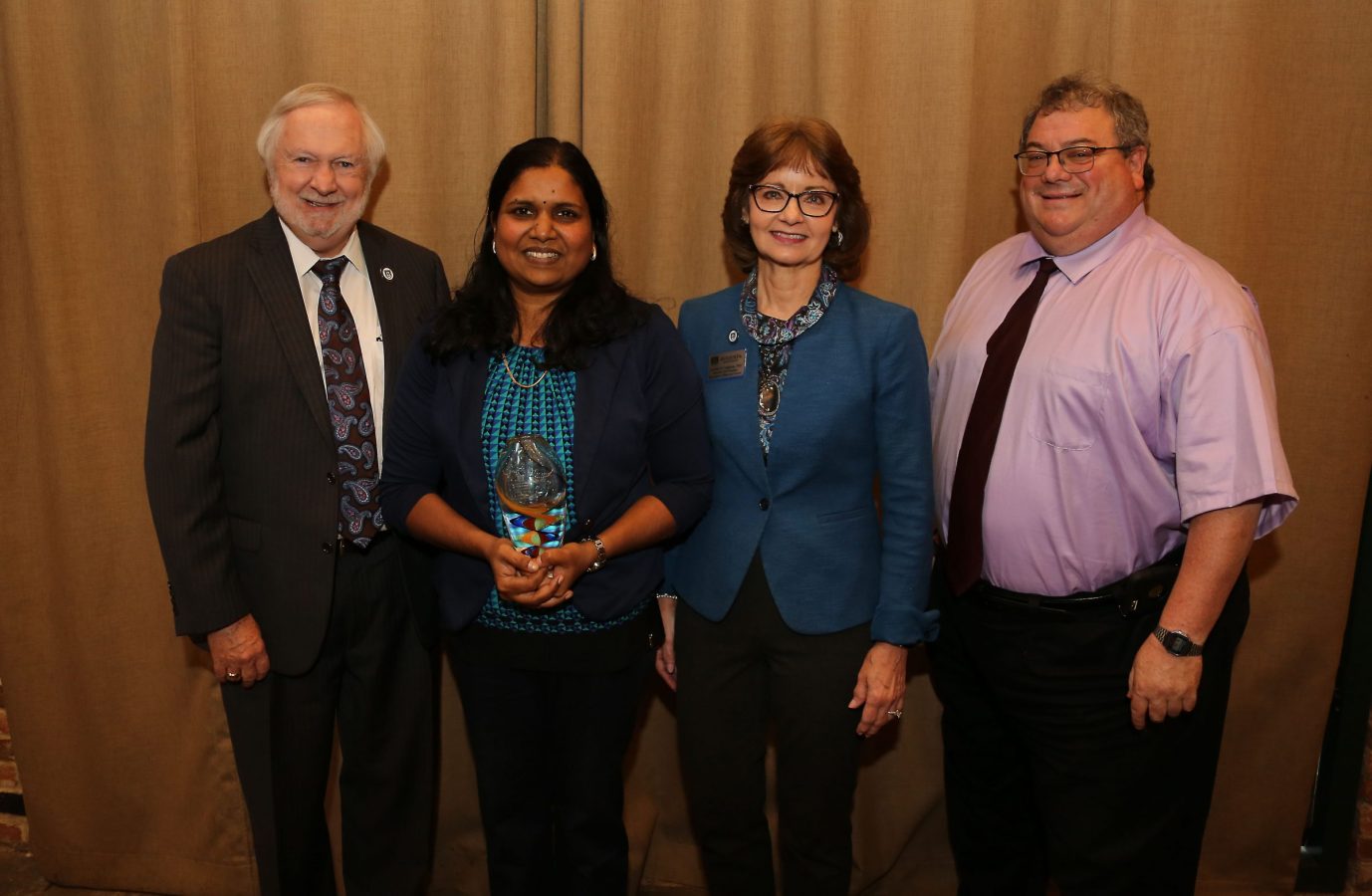
Sukumari Ramesh is respected for her research characterizing secondary brain injury after intracerebral hemorrhage.
Also, Dr. Wendy Bollag, professor in the Department of Physiology at MCG, and Dr. Mark Hamrick, professor in the Department of Cellular Biology and Anatomy, both took home the Distinguished Researcher award.
This award recognizes a faculty member who has made significant sustained contributions to research, providing insights into mechanisms of disease prevention, detection or therapy.
Bollag is widely respected by her scientific peers for her work focused upon the mechanisms of hormones, growth factors, cytokines and other molecules’ signal cells.
“I was very flattered to receive the AURI Distinguished Researcher award, particularly since I was nominated by both a new colleague as well as a longtime collaborator and colleague whom I have known for more than 30 years,” Bollag said. “To be selected from among such stellar researchers and to share the award with Dr. Mark Hamrick, whom I respect tremendously as a researcher and colleague, represents a truly great honor from my AU colleagues.”
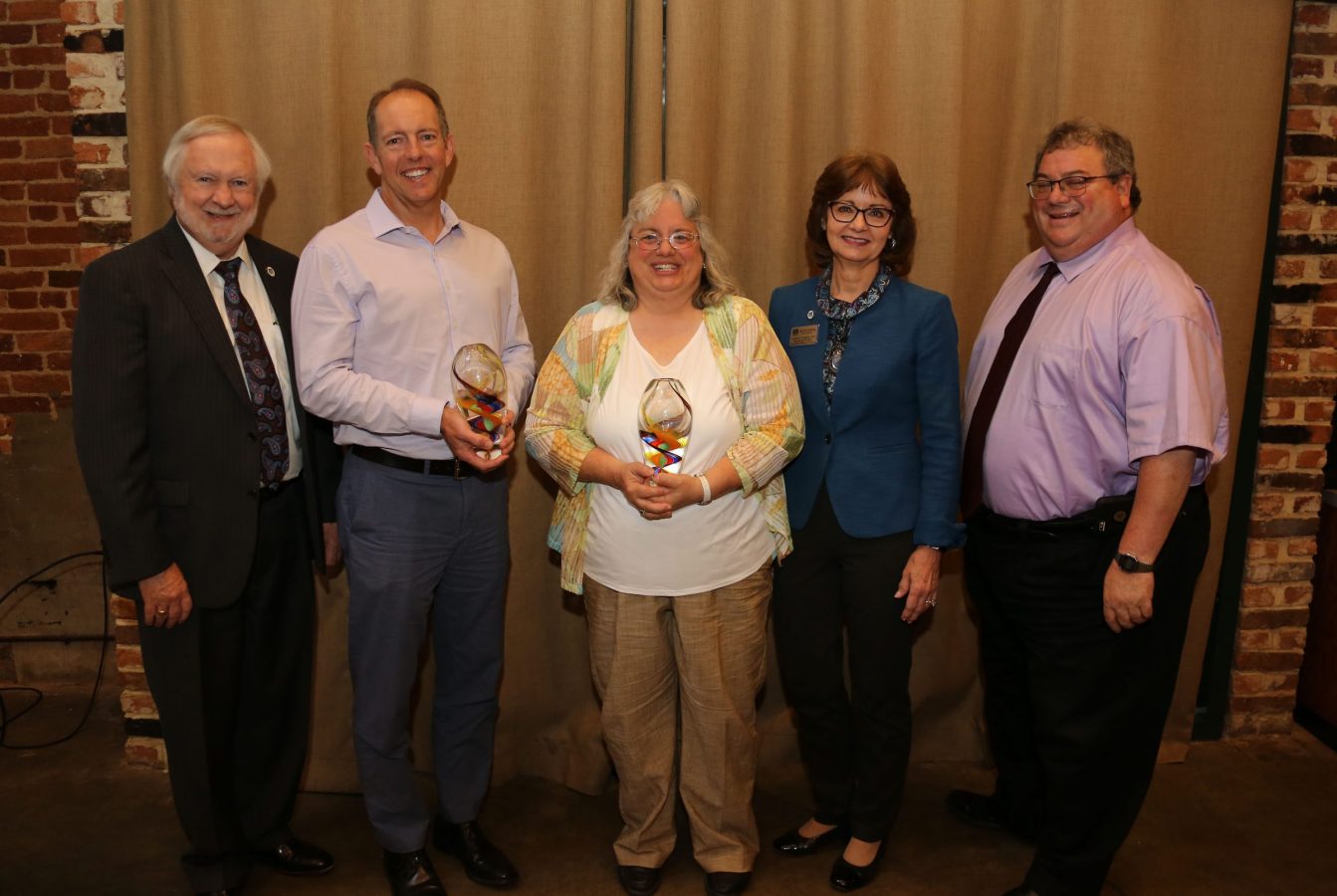
Hamrick is a musculoskeletal biologist whose research is focused on age-induced impairment of nutrient signaling related to bone loss.
“My initial interest was studying skeletal form and function in fossils to better understand the biology of extinct species,” he said. “Over time this led my research to focus more on the cellular and molecular mechanisms that influence the skeleton, which has now been directed toward understanding skeletal aging. As I move closer to becoming a fossil myself, studying bones is more relevant than ever!
“To me, the award acknowledges the many contributions of our collaborators, who have shared with us new approaches and techniques that helped to move our research forward,” he added.
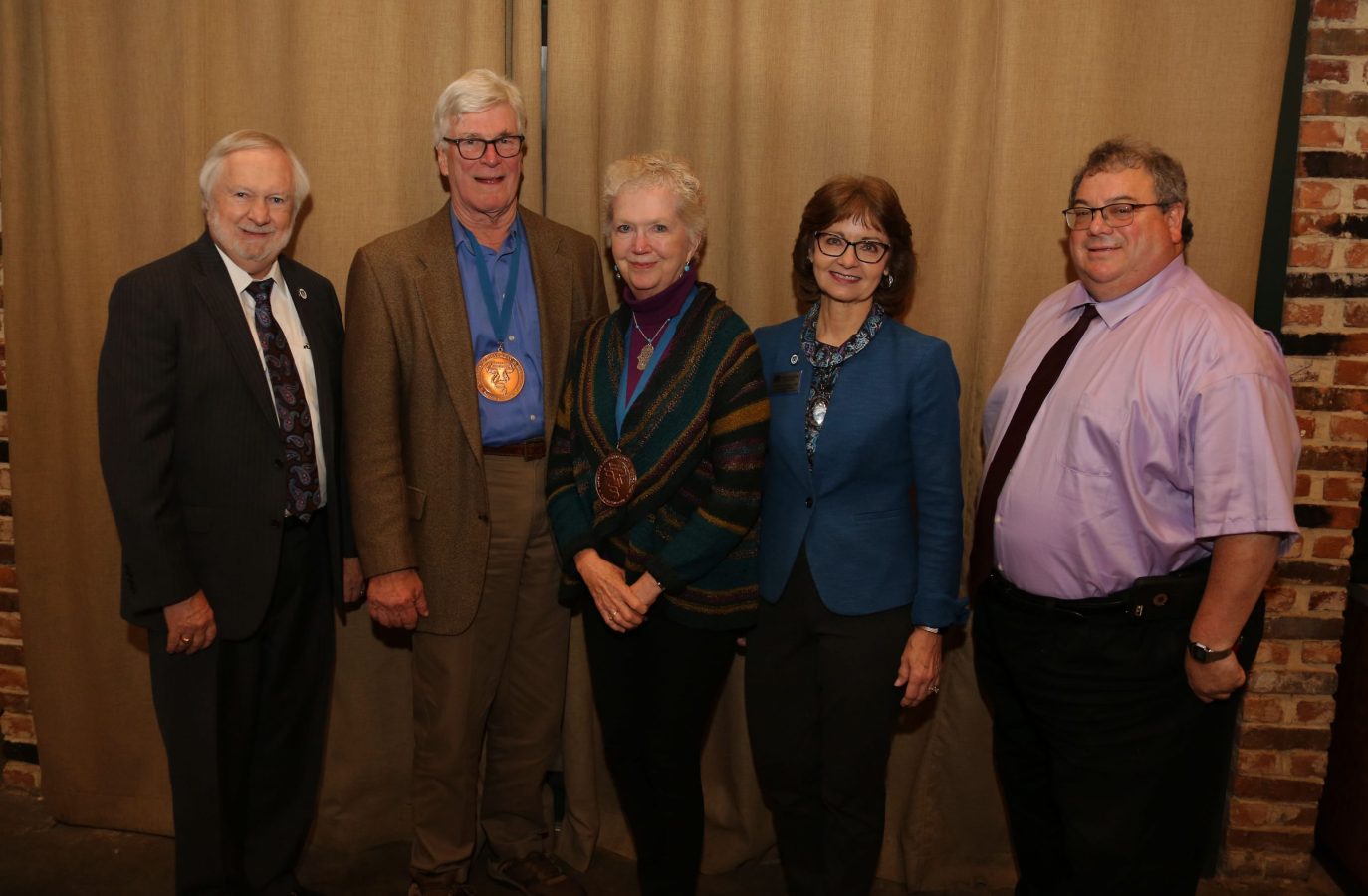
Dr. R. William Caldwell, professor and chair emeritus of the department of Pharmacology and Toxicology at MCG, and Dr. Ruth Caldwell, professor of the department of Cellular Biology and Anatomy and the Vascular Biology Center, were honored with the Lifetime Achievement award for their sustained research productivity, teaching ability and commitment to service at the institutional, national and international level in the fields of pharmacology, vascular biology and medicine.
 Augusta University
Augusta University
